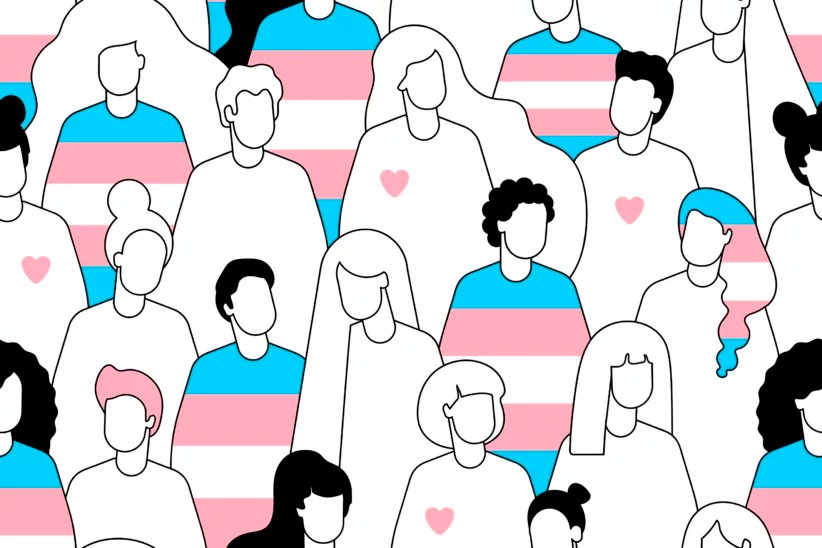
Wave of Gender-Affirming Care Bans Across the U.S. Continues: What New York Parents Need to Know
Transgender activism is one of the most divisive topics facing the United States today.
As part of an ongoing debate pitting parents, politicians, activists and others against each other, laws and policies are being passed in states across the country that either support or restrict trans rights. Gender-affirming healthcare for kids is at the forefront of the issue. But this topic begs so many questions from parents, including: What exactly is gender-affirming healthcare? Why are states banning it? And what does it mean for families in New York?
Gender-Affirming Healthcare for Kids: Is it Banned in New York?
No. New York State Governor Kathy Hochul and other state officials have shown their continued support for the transgender community. And there is nothing in existing state law that restricts gender-affirming care in New York, according to the governor’s office. In fact, the state is taking it a step further with a trans-focused bill that just passed the senate judiciary committee.
Democratic state senator, Brad Hoylman-Sigal, recently sponsored the Trans Safe Haven bill, which would make NYS a refuge for out-of-state youth seeking gender-affirming care.
“Trans people remain under attack every day across the country. They should have a haven in New York,” Hoylman-Sigal tweeted on March 31.
According to the New York Civil Liberties Union, teens need parental consent to receive gender-affirming care in most cases, but not all.
If Hoylman-Sigal’s bill gets approved by the state Assembly, it’ll make its way to the governor’s desk. It’s still a bit early, so there’s no word yet on whether Hochul will sign or veto the bill.
Much of the senate bill relates to certain prohibitions regarding the legal system and gender-affirming care. According to the senator’s Twitter page, the bill:
- Ensures kids will not be separated from their parents for aiding in their access to gender affirming care.
- Prohibits law enforcement from cooperating with other states’ investigations regarding legal gender-affirming care.
- Protects the health information of people who come to NYS to receive gender-affirming care.
- Protects physicians who provide gender-affirming care in NYS.
But what is it that’s at the center of the controversy? Throughout the country, both supporters and those who question gender-affirming care want parents to know what this kind of medicine actually means for kids.
What is Gender-Affirming Healthcare?
Like any divisive issue, it depends who you ask. In an op-ed letter to the Wall Street Journal on Aug. 21, 2022, Moira Szilagyi, M.D., past president of the American Academy of Pediatrics (AAP), wrote:
“In its recommendations for caring for transgender and gender-diverse young people, the AAP advises pediatricians to offer developmentally appropriate care that is oriented toward understanding and appreciating the youth’s gender experience. This care is nonjudgmental, includes families and allows questions and concerns to be raised in a supportive environment. This is what it means to “affirm” a child or teen; it means destigmatizing gender variance and promoting a child’s self-worth. Gender-affirming care can be lifesaving. It doesn’t push medical treatments or surgery; for the vast majority of children, it recommends the opposite.”
Other medical organizations including the American Medical Association and the World Professional Association for Transgender Health have expressed support for gender-affirming care. But there are many parents, doctors, researchers and others who have concerns about transitioning kids and the movement’s rapid rise to society’s center stage.
Leor Sapir, Ph.D., is a fellow at the Manhattan Institute, a research and policy think tank, who’s researched a variety of transgender issues. He explained that these medical organizations don’t have much in the way of solid medical proof to back up their claims that gender-affirming care works. None of them, he said, have done systematic reviews of their evidence— a method of review designed to prevent biased analysis.
Sapir also cites the recent reversals of gender transition policies in several European countries, including Sweden, which is considered one of the friendliest countries to LGBTQ people.
“Systematic reviews were done in Sweden, Finland and the U.K. All those reviews came back with the same conclusion, which is that the evidence for gender-affirming care is extremely weak,” Sapir said. “Finland’s health authority declared it an experimental practice. That’s why all these countries now have placed severe restrictions on access to hormones.”
Patients in these countries can receive hormone treatments for gender dysphoria in very limited circumstances and only within research settings. This means everyone is in agreement—specifically patient and doctor—that the treatment is considered a medical experiment, Sapir explained. In the United States, things are different.
“Here in the United States, American medical groups have said it’s settled science, there are no doubts and if anyone disagrees, it must be because they’re driven by some kind of animus or bigotry,” Sapir said. “So the relevant question to ask is, ‘Why are American medical groups so out of whack with a growing international consensus against gender-affirming care?’”
What Does Gender-Affirming Healthcare for Kids Include?
The World Health Organization defines gender affirming care as “any single or combination of a number of social, psychological, behavioral or medical interventions designed to support and affirm an individual’s gender identity.”
Presley Nichols, M.D., is a pediatric endocrinology fellow at Columbia New York-Presbyterian. She provides endocrine care to kids suffering from a variety of conditions, including type 1 diabetes and thyroid disease. Her work also includes gender-affirming care, which she described as an umbrella term for any kind of treatment that’s affirming. This could even include a social transition, long before a child receives actual medical treatment.
Social transitioning for a child can include things like choosing pronouns they’re comfortable with, dressing in a way that feels right and going by a different name.
“These are things that people sometimes do if they know early, and a lot of kids do,” the doctor explained. “A lot of kids will express this as early as they’re aware of gender.”
Social transitioning is a time for support, and there’s no medicine involved at this point, Nichols said.
Aside from social transitioning, medical interventions can include hormonal therapy, such as puberty blockers, which doctors can give to suppress the progression of puberty. Treatment can also include sex steroid therapy with estrogen or testosterone.
Parents might wonder: Is gender-affirming care reversible?
Nichols described gender-affirming care as having stages of reversibility—if a person chooses to do so.
“Puberty blockers—completely reversible. You can totally take them off and nothing has happened,” Nichols explained. “Sometimes when you introduce estrogen or testosterone, you can introduce some less reversible changes. And then, of course, surgery is the least reversible.”
Non-reversible effects of taking sex steroids include some body modifications, voice changes and possibly issues with fertility, Nichols explained.
Gender-Affirming Care: Is it Lifesaving for Kids?
Supporters of gender-affirming care say children with gender dysphoria are at an increased risk of attempting suicide. But that risk drops significantly for LGBTQ kids who live in a community that’s more accepting of LGBTQ people, according to The Trevor Project, an advocacy group for LGBTQ youth.
According to a recent survey by the organization, nearly 1 in 5 transgender and nonbinary youth attempted suicide last year. At the same time, the survey also found that 60% of LGBTQ youth who wanted mental healthcare in the past year were not able to get it.
“The top four barriers to care reported by youth were fears around discussing mental health, concerns with parental permission, fears of not being taken seriously, and lack of affordability,” Kasey Suffredini, vice president of advocacy and government affairs for The Trevor Project, said.
But Sapir calls this statistic irresponsible and does not tell the full story.
“What we don’t know is whether gender dysphoria in and of itself causes a person to be inclined toward suicidal behaviors,” Sapir said. “And the reason we don’t know that is because a vast majority of kids with gender dysphoria—especially teenage girls—who present to gender clinics have preexisting underlining mental health problems which are themselves linked to suicide.”
Anxiety, depression and even autism are risk factors for suicide and suicidality. (NOTE: Suicidality refers to thoughts of suicide, plans or gestures, as opposed to suicide, which refers to completed, sincere or serious attempts to end one’s life). Sapir cited the Tavistock Clinic, a now-closed gender-affirming care clinic in England, where 1 in 3 patients was diagnosed with autism.
“So the question is, are we seeing kids who are already prone to suicidal behaviors gravitating toward a trans identity, maybe thinking that the solution to their mental health problem is gender transition? That’s certainly what they’re being told,” Sapir said. “Or, are we seeing evidence that there just are these kids who are born trans and are inherently suicidal if not affirmed? If you look at the totality of the evidence and the causal relationships, the first explanation is much, much more likely.”
Speaking of youth mental health, the Centers for Disease Control and Prevention (CDC), released data in February showing teenage girls in particular are experiencing a worsening mental-health crisis.
A Look at State Policies
As the wave of safe haven bills and bans on gender-affirming care cover the country, a key thing to know is that these policies are being made on the state level. But, the Biden administration has made it clear that they are against restrictive state policies on many transgender issues, including gender-affirming healthcare for kids.
The Trevor Project is tracking many bills being introduced across the country aimed at transgender and non-binary young people.
“Amid this public health crisis, it’s heartbreaking to see the government overreach on display across the country, as lawmakers push to criminalize the provision of age-appropriate, medically-necessary care that has shown promise for reducing suicide risk,” Suffredini said. “The proposed legislation would strip away best-practice care that many trans young people rely on to lead healthy, happy lives, and only further fuel stigma and isolation. And it’s not just these misguided policies that pose a threat, it’s the vitriolic public debates around them. 86% of transgender and nonbinary young people say recent debates about state laws restricting the rights of transgender people have negatively impacted their mental health.”
Here’s a look at the status of other gender-affirming healthcare bills and laws passing through states at press time:
California: Governor Gavin Newsom passed a law in January that provides refuge for trans kids and their families who come from states outlawing gender-affirming care. The law inspired other states to introduce similar “trans refuge” bills across the country.
New Jersey: Governor Phil Murphy signed an executive order declaring the state a safe haven for people seeking gender-affirming care.
Minnesota: Governor Tim Walz signed a bill into law in April that protects people seeking or providing gender-affirming healthcare in Minnesota.
South Dakota: Governor Kristi Noem signed a bill banning gender-affirming care for anyone younger than 18.
Georgia: Governor Brian Kemp signed a bill prohibiting most gender-affirming care treatments in minors.
Iowa: Governor Kim Reynolds signed into law in March a bill banning gender transition procedures in minors. She also signed a bill into law preventing people from entering restrooms or changing areas in schools that do not correspond with the person’s biological sex.
Tennessee: A state ban on gender-affirming healthcare for kids will go into effect July 1. The U.S. Justice Department is currently challenging this ban.
Mississippi: The state bans gender transition procedures for minors. It also prevents public funds or tax deductions for prohibited gender transition procedures, places enforcement procedures on the Mississippi State Board of Medical Licensure and stops Medicaid from covering gender transition for persons under 18.
Utah: Earlier this year, Governor Spencer Cox signed a bill that prohibits transgender surgery for minors. It also prohibits healthcare providers from giving hormonal transgender treatment to new patients who were not diagnosed with gender dysphoria before a certain date. The law says a person can bring medical malpractice action related to certain medical treatments and procedures.
Florida: Last year, Florida medical boards voted to ban gender-affirming care to treat gender dysphoria in kids. The state also has the Parental Rights in Education Law and Stop WOKE on the books.
Arkansas: Governor Sarah Huckabee Sanders signed a new law that makes it easier to sue providers of gender-affirming care for minors.
Indiana: Governor Eric Holcomb signed a bill banning gender-affirming care for minors.
Idaho: Starting in 2024, gender-affirming care for trans youth will be banned.
Montana: Governor Greg Gianforte signed a bill banning gender-affirming care for minors.
Oklahoma: Governor Kevin Stitt signed a bill on May 1 banning all irreversible gender transition surgeries and hormone therapies for minors. The new law bans the use of any medications or surgical procedures for the purpose of gender transition. Penalties for violation include felony charges, license revocation and civil actions which can be filed by a parent or guardian.
If you or someone you know is having thoughts of suicide, help is just a phone call away. Dial 988 for the Suicide & Crisis Lifeline, which provides 24/7, free and confidential support and resources for people in distress.























